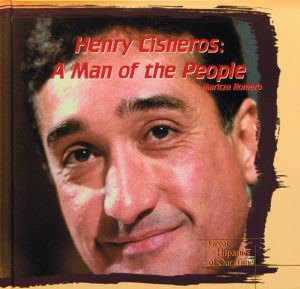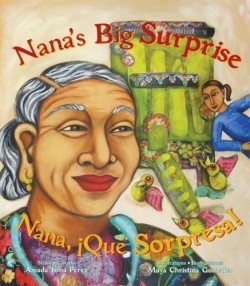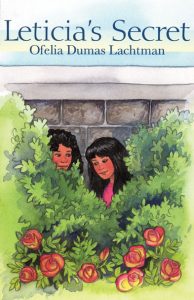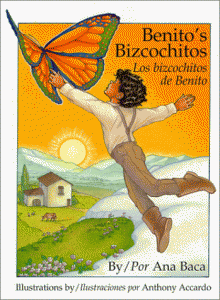 A vivid portrayal of a close-knit Hispanic community Felita’s parents promise she will love their new neighborhood. Only Abuelita, her grandmother, understands how much Felita will miss her old block, and her best friend Gigi. But her new neighbors taunt and tease Felita and her family because they are from Puerto Rico. First published twenty years ago, Felita’s compelling story has resonance for kids today.”An honest, realistic view of an important aspect of contemporary American life.” –The Horn Book* An NCSS-CBC Notable Children’s Trade Book in the Field of Social Studies* A Child Study Children’s Book Committee Children’s Book of the Year* A Puffin Novel * 112 pages * Ages 8-12
A vivid portrayal of a close-knit Hispanic community Felita’s parents promise she will love their new neighborhood. Only Abuelita, her grandmother, understands how much Felita will miss her old block, and her best friend Gigi. But her new neighbors taunt and tease Felita and her family because they are from Puerto Rico. First published twenty years ago, Felita’s compelling story has resonance for kids today.”An honest, realistic view of an important aspect of contemporary American life.” –The Horn Book* An NCSS-CBC Notable Children’s Trade Book in the Field of Social Studies* A Child Study Children’s Book Committee Children’s Book of the Year* A Puffin Novel * 112 pages * Ages 8-12
Latinx in US
Henry Cisneros: A Man Of The People (Romero, Maritza. Great Hispanics Of Our Time.)
Nana’s Big Surprise / Nana, Que Sorpresa! (Spanish Edition)
Leticia’s Secret
Roberto Clemente: Baseball Legend
Introduces the life of Pittsburgh Pirates rightfielder Roberto Clemente, the first Latino baseball player to gain wide recognition for his contributions on and off the playing field.
The Eggbees
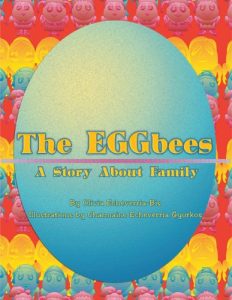 The EGGerson family lives on a planet called NEGGarus in a galaxy far, far away. On NEGGarus, everything is either round or oval shaped. The people who live there Supersapien EGGbeings, or EGGbees come in different sizes and colors, but they re all shaped like, well, EGGs. The EGGerson family, like all EGGbee familes, has twelve members because they’re better by the dozen. In addition to Daddy, Mommy, Grandpa, and Grandma, there are GrEGG, JEGGsica, EGGward, EGGelbert, MEGGie, PEGGie, EGGmond, and EGGbeth. One day, Mommy EGGerson tells her children that their cousins from MEGGxico are coming for a visit. The kids are thrilled to meet the MEGGanas: LEGGticia, EGGuardo, PEGGlicia, DiEGGo, EGGnacio, MEGGuelito, MEGGarita, and EGGlida. But the EGGerson kids are surprised and confused by the MEGGanas’ appearance: their shells are a beautiful brown color, not white like the EGGersons’. As the cousins spend the next few days together, they come to realize that in spite of the difference in their shell color they have lots of things in common. Sure to generate giggles in children ages 4-8, this bilingual picture book focuses on family and daily activities to share an important concept with children about acceptance.
The EGGerson family lives on a planet called NEGGarus in a galaxy far, far away. On NEGGarus, everything is either round or oval shaped. The people who live there Supersapien EGGbeings, or EGGbees come in different sizes and colors, but they re all shaped like, well, EGGs. The EGGerson family, like all EGGbee familes, has twelve members because they’re better by the dozen. In addition to Daddy, Mommy, Grandpa, and Grandma, there are GrEGG, JEGGsica, EGGward, EGGelbert, MEGGie, PEGGie, EGGmond, and EGGbeth. One day, Mommy EGGerson tells her children that their cousins from MEGGxico are coming for a visit. The kids are thrilled to meet the MEGGanas: LEGGticia, EGGuardo, PEGGlicia, DiEGGo, EGGnacio, MEGGuelito, MEGGarita, and EGGlida. But the EGGerson kids are surprised and confused by the MEGGanas’ appearance: their shells are a beautiful brown color, not white like the EGGersons’. As the cousins spend the next few days together, they come to realize that in spite of the difference in their shell color they have lots of things in common. Sure to generate giggles in children ages 4-8, this bilingual picture book focuses on family and daily activities to share an important concept with children about acceptance.
The Storyteller’s Candle/La Velita De Los Cuentos
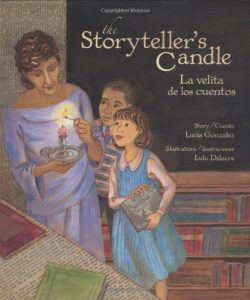 It is the winter of 1929, and cousins Hildamar and Santiago have just moved to enormous, chilly New York from their native Puerto Rico. As Three Kings’ Day approaches, Hildamar and Santiago mourn the loss of their sunny home and wonder about their future in their adopted city. But when a storyteller and librarian named Pura Belpré arrives in their classroom, the children begin to understand just what a library can mean to a community. In this fitting tribute to a remarkable woman, Lucía González and Lulu Delacre have captured the truly astounding effect that Belpré had on the city of New York.
It is the winter of 1929, and cousins Hildamar and Santiago have just moved to enormous, chilly New York from their native Puerto Rico. As Three Kings’ Day approaches, Hildamar and Santiago mourn the loss of their sunny home and wonder about their future in their adopted city. But when a storyteller and librarian named Pura Belpré arrives in their classroom, the children begin to understand just what a library can mean to a community. In this fitting tribute to a remarkable woman, Lucía González and Lulu Delacre have captured the truly astounding effect that Belpré had on the city of New York.
Tyrone’s Betrayal (Roosevelt High School)
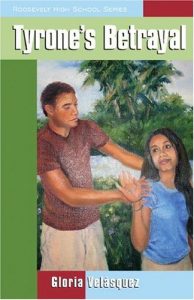 Drinking and fighting are nothing new in Tyrone’s house, but this time, his dad leaves and doesn’t come back. Tyrone’s anger at his father’s desertion finds an outlet through violent eruptions at school. Life at home is no better as his mother begins working a night job to pay the bills and expects him to take care of his siblings. Instead, he starts partying with older kids, skipping school, and sneaking home in the early morning hours. But when his younger brother is caught stealing candy, Tyrone realizes that he will have to take on the responsibility whether he wants to or not. Settling in to his new role, Tyrone is furious when he learns that his father wants to come home. He just doesn’t understand how his mother can forgive his father so easily. With the help of his friends and counselor, Tyrone begins to deal with his feelings of anger and betrayal as the son of an alcoholic, absentee father. This book is the seventh novel in Gloria Velasquez’s popular Roosevelt High School series, which features a multiracial group of teenaged students who must individually confront social and cultural issues (such as violence, sexuality, and prejudice) that young adults face today.
Drinking and fighting are nothing new in Tyrone’s house, but this time, his dad leaves and doesn’t come back. Tyrone’s anger at his father’s desertion finds an outlet through violent eruptions at school. Life at home is no better as his mother begins working a night job to pay the bills and expects him to take care of his siblings. Instead, he starts partying with older kids, skipping school, and sneaking home in the early morning hours. But when his younger brother is caught stealing candy, Tyrone realizes that he will have to take on the responsibility whether he wants to or not. Settling in to his new role, Tyrone is furious when he learns that his father wants to come home. He just doesn’t understand how his mother can forgive his father so easily. With the help of his friends and counselor, Tyrone begins to deal with his feelings of anger and betrayal as the son of an alcoholic, absentee father. This book is the seventh novel in Gloria Velasquez’s popular Roosevelt High School series, which features a multiracial group of teenaged students who must individually confront social and cultural issues (such as violence, sexuality, and prejudice) that young adults face today.
Wiggling Pockets/Los bolsillos saltarines (My Family: Mi Familia) (Spanish Edition)
How many frogs fit in Danny’s pockets? It’s a jumping surprise! ¿Cuántas ranas caben en los bolsillos de Danny? ¡Es una sorpresa saltarina! One frog hops on Tina’s head, Una rana brinca encima de la cabeza de Tina, And another springs onto Mom’s delicious cherry pie! Oh, no! ¡Y otra rana cae encima del delicioso pastel de cerezas que hizo Mamá! ¡Ay, no! We don’t want to eat frog pie! ¡No queremos comer pastel de ranas! Wiggling Pockets Los bolsillos saltarines This bilingual book will appeal to anyone who’s ever been unintentionally mischievous—just like Danny with his wiggling pockets full of frogs! Este libro bilingüe le encantará a todos los que sin querer han sido un poco traviesos . . . ¡igual que Danny y sus bolsillos saltarines llenos de ranas!

